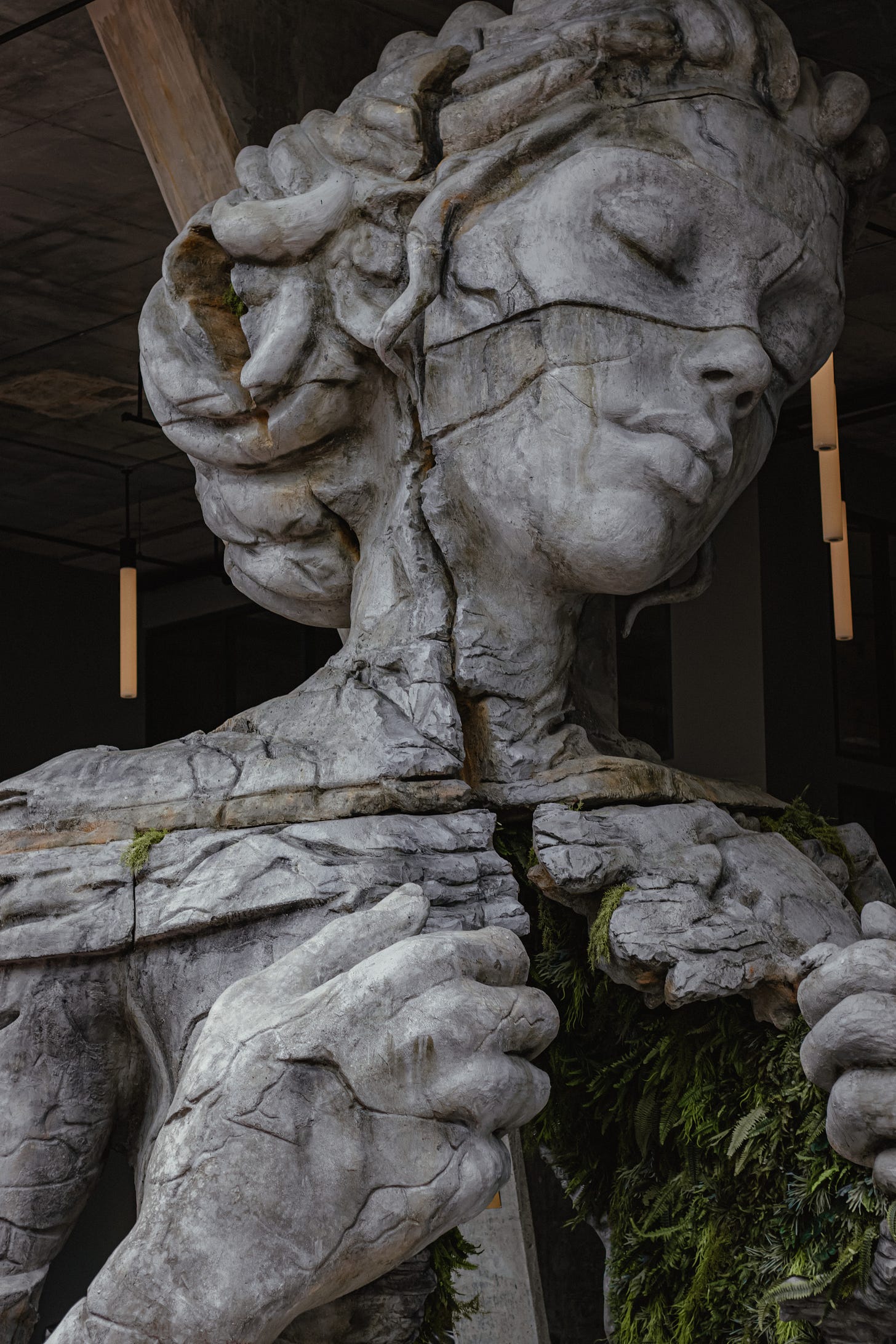Creating the Webbd Wheel: Caregiving
In which we are more than the roles we play ...
The last three years of the pandemic have newly highlighted the challenges caregivers face, not only parents caring for children and adult children caring for aging parents, but professional caregivers. As a lifelong caregiver both in my personal and work life, I can tell you caregiver burnout is real.
Caregiving in our culture is not profitable and many times not even visible. Satisfaction in the feeling of making a positive contribution to the animals and/or people we care for may be the only recognition or reward we get.
I would like to be able to tell you I’m saintly enough to continue to caregive under any and all circumstances, that my unconditional love is infinite, that I’m unselfish enough to give freely without wanting anything in return.
I think I should be that woman, but I’m not that woman.
Caregiving is rewarding for me. It’s also exhausting. The hardest thing about it is the shadow side of the caregiver archetype, which is we’re great at caring for everyone but ourselves.
Many caregivers get into the pattern of pouring their love, concern, and support out for others while being unable to care for themselves. We have poor or nonexistent boundaries. We’re often codependent. We’re often unhealthy and suffer from stress-related problems. We use caregiving as a distraction to try to fill the abyss where our relationship with ourselves should be.
Running on empty is not effective.
Yet caregiving is a social expectation, particularly for women. The world expects us to care for those around us cheerfully, without complaint, fatigue, or resentment. We expect it of ourselves, too.
In post #28, Mary is relieved from caregiving, which has burned her out. She has thoughts and feelings about that. Shame. Guilt. Sadness. Relief. In a remote boarding house in a cold landscape during the dead of winter, she has nothing to do but reclaim herself.
Wherever our lives take us, we are many things. The act of parenting is so intense, we forget – and our kids never realize unless they become parents themselves – we were someone before we had children. We will be someone after our children are emancipated. Parenthood adds a dimension to who we are, but it doesn’t erase everything that came before.
A life lived in service to others is a beautiful life, but only if we also serve ourselves. If we don’t, we’re merely throwing our lives away for someone else, which helps nobody. We must be prepared to love and cherish ourselves as much as we do those around us.
Caregiving is fraught with long-term complications. As a parent, I believe if I had done less for my sons they would have been better off, especially during the teenage years. I suppose it’s human nature to take others for granted, but when our love and emotional labor is nothing more than a met expectation, it’s easy to feel like a fuel pump rather than a woman. When we feel obligated to caregive for long periods of time it can feel as though we’re being asked to sacrifice our very lives.
Even a fuel pump needs to be refilled if it is to continue to provide fuel.
Love is a gift. If we are lucky enough to have those in our life who demonstrate their love for us through connection, touch, communication, presence, and contribution, we need to recognize them, thank them, and appreciate them. Such people are not caregiving for a paycheck. One can’t buy unconditional love and friendship. We are not entitled to drain dry those who care for us.
Many times in my life I’ve fantasized of a place like Janus House. A place to be where no one could find me. A place where no one needed anything from me. A place where I didn’t have to be the strong one, the organized one, the caring one, the responsible one. Learning to take as well as give is an uncomfortable challenge, but if we as women meet the challenge we have graduated from a mere caregiver to a crone, a grandmother, a wise old woman who knows how to give while retaining what she needs for herself.
Time is not at Janus House, so, paradoxically, Mary has time. She doesn’t need to leave until she’s ready. She can rest, eat, explore paths, meet others, and be. Whatever occupies her time and attention is exactly the right thing. She doesn’t need to try to be anything or do anything. She is not confined to the role of mother, daughter, lover, or anyone else.
What a blessed relief.
(This essay was published with post #28 of The Hanged Man.)



